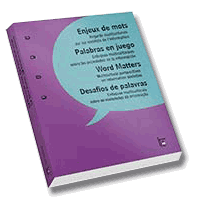Towards Knowledge-SharingSocieties
We lead plural lives: we talk, we exchange, we create, we weave links through diversity. Yet, for all that, our experience of “Information Society” over the last decade has been lived in the singular.
The expression itself emanated from the inner circles of the initiated, and has led to the creation of a world summit on the theme. Of all the UN summits since the early 1990s, it is the only one with a theme containing the word “society”. Previous summits were dedicated to one or other of the important questions which have marked our era: the environment (Earth Summit in Rio), women (Beijing), population (Cairo), social development (Copenhagen)... The reasons why WSIS was not called simply WIS - World Information Summit - are important: for its creators, the Summit was expected to demonstrate that “information” can not be reduced to mere questions of infrastructures and techniques, that it also raises important social issues. It was a concept which would attract support from the largest number of people possible, since everyone agrees on the importance of the transformations generated by the arrival en masse of informational technologies in our societies, in the North as in the South.
However, the consensus ends there. For its governmental sponsors, the Summit is first and foremost about the impact of information on our systems of production: in the same way that water and energy were the keystones of first the agrarian society, and then the industrial society, information seemed to be the new backbone of our economies.
Identifying a method of production as the fundamental characteristic of a society is not a neutral decision. This choice has been hailed equally by some of Marxism’s successors, for whom economic infrastructure determines cultural superstructures, and by ultra-liberals, who can only understand the world in terms of economic competition, and thus reveals the futility of giving primacy to the economy. Such primacy is, however, supported by media corporations and politicians - and of course by economists, for whom information, as a driving force for the economy, is now the new planetary line.
The “total economic” approach was denounced in the early 1990s by numerous community and social movements throughout the world, rejecting the supremacy of the market over everything relating to health, culture, environment, and development in general. That resistance is still alive today and is fighting inch by inch for acceptance of exceptions to the rules of international trade and for respect of our common interests in order to ensure that they are not subordinated to the dogma dictating that nothing should prevent the market, on condition that it is “free”, from being the main source of growth and well-being. The best-known example of derogation to this rule, in recent years, is that of generic drugs: at the Doha Summit, the imperatives of a healthy planet were momentarily and transitorily more important that those of intellectual property and trade.
At the first sight, the same movement of liberalization/resistance emerged in discussions about information: on one side, the international dominant position holds that only deregulation of markets can guarantee the existence of the infrastructure necessary for universal access to the Information Society. On the other hand, movements are fighting to ensure that information remains above all a public good and calling for regulation and public governance at a level appropriate for the important issues of the Information Age.
The more we look at these questions, the more complex the main themes become. It is as if information is incapable of allowing itself to be locked into the grand categories which structure confrontations in the world today. In the first place, information is indeed at the heart of the current economic process, yet it transcends and often eludes all attempts at control. In spite of ¬people who see culture only in terms of “cultural goods” to be produced by “cultural industries” and as a source of potential markets, information networks have led to an explosion of non-commercial trade in cultural content, giving visibility to creative forces which are now interconnected and which invent and experiment while exploring new forms of collaborative production.
In addition, within the very production processes themselves, information upsets all the basic rules of capitalism. Allowing an endless increase in productivity, it removes production costs from the heart of manufacturing and places them in areas of immateriality such as marketing and publicity, which themselves contribute, each in their own way, to shaping our view of the world.
Remaining in the economic sphere, the intrinsic abundance of information is now capable of being reproduced ad infinitum and at very low cost, thanks to digitalization. As a result, attempts to import rules from the world of ownership of material goods and apply them to the area of intellectual property have been rendered ineffective. People who talk about reinforcing intellectual property rights are engaged in a frantic and - in all probability - pointless attempt to recreate an artificial rarity using legal or technical procedures.
Turning to another important issue, just when the information market, in its highly competitive form where there are few rules, is marked by attempts to construct monopolistic positions (Microsoft, Google), cooperative productive and self-productive processes and creations by the users themselves are emerging everywhere. Their success highlights the fact that creativity and innovation can sometimes escape the thralls of classic capitalism and raises questions about our notions of progress and development.
If we venture beyond the area of economics, we find new forms of information dissemination (CMS, blogs, VoIP, VoD, podcasting...) which encourage self-expression. Globalization, in its form of decompartmentalisation of cultural resources and of traffic in knowledge, is not a members’ enclosure reserved for the media or the media-promoted elite, but can be opened up to people who until recently had seen their right to exercise freedom of expression confiscated de facto. In the category of word monopolists, we find those who think they have the exclusive right to “talk”, who have taken control of the media market and media politics. Alternative uses of new information technologies do in fact make their presence known within and without the traditional “Fourth Estate”. They have demanded a redefinition of the rules governing mass media and of the place and role of those rules which in turn has led to a redefinition of the very notion of a “public information service”, in particular in broadcasting.
Finally, in the early days of Internet, players involved in technological innovation established various forms of self-regulation (W3C, IETF...) which upset not only supporters of the superpower’s “realpolitik” but also advocates of intergovernmental multilateralism. In fact, the emergence of these standardisation structures coincided with the rising importance of the private sector, to the detriment of public players (the state, local authorities, supra-national institutions). Public power was being eroded, here and at the UN, where each next summit saw the private sector being celebrated for playing a more important role than before and being invited to give generous support to UN initiatives, including the holding of summits themselves! Here we are caught in a “double bind”: encourage creative participation in whole aspects of society, without actually authorizing the privatization of the major responsibilities of the State.
But if, on the one hand, we must not blind ourselves to this challenge to our representations which are based on the new importance given to information, on the other hand, we must avoid thinking that the Information Society lies somewhere in some other world, way beyond the one from which it emerged.
WSIS has been organized over more than three years (from July 2002 to November 2005).
During these three years, the international scene has been marked by two - amongst other - important evolutions:
![]() The decision by the most important power in the world to reject multilateralism and international democratization. This country exists in an isolation marked by the conflict in Iraq, is repeatedly refusing to sign the Kyoto Agreements and to join the International Court of Justice and, at the time when this article is written, systematically obstructing reforms for the UN system and any attempt to democratize the international political arena. Put this way, the debate on governance of the Internet, considered as a major issue at WSIS, and the refusal of the United States to give up control of ICANN are merely echoes of much larger problems in the broader context. We see this attitude repeated again and again in other negotiation fora: at UNESCO, the United States, together with the majority of other industrialized countries, is opposed to a compulsory convention on cultural diversity; and, at WIPO, these same countries block the debate on an essential evolution on concepts of intellectual property that would encourage development and access to knowledge in the digital age.
The decision by the most important power in the world to reject multilateralism and international democratization. This country exists in an isolation marked by the conflict in Iraq, is repeatedly refusing to sign the Kyoto Agreements and to join the International Court of Justice and, at the time when this article is written, systematically obstructing reforms for the UN system and any attempt to democratize the international political arena. Put this way, the debate on governance of the Internet, considered as a major issue at WSIS, and the refusal of the United States to give up control of ICANN are merely echoes of much larger problems in the broader context. We see this attitude repeated again and again in other negotiation fora: at UNESCO, the United States, together with the majority of other industrialized countries, is opposed to a compulsory convention on cultural diversity; and, at WIPO, these same countries block the debate on an essential evolution on concepts of intellectual property that would encourage development and access to knowledge in the digital age.
![]() Increasing collective fear, nurtured by world-wide terrorism and by talk of “total security”. There are plenty of examples in history showing how these fears feed social conformism and encourage warmongering. We are seeing a general regression of basic human rights, when they are not actually being challenged, and of the whole international legal and juridical structure established as a result of tremendous struggles during the last century. In this regard, the choice of Tunisia as WSIS host - that is of a country that does not allow free circulation of information - constitutes a paradox which only can be explained by the current security context. Technological innovation, essential for improving living conditions over the last 100 years, is itself faced with security issues, though there is the risk that they will curb its capacity for creativity. The guardians of democracy, as guarantors of the use of technology in ways which respect freedom and fundamental rights, are losing ground in the face of warlike arguments.
Increasing collective fear, nurtured by world-wide terrorism and by talk of “total security”. There are plenty of examples in history showing how these fears feed social conformism and encourage warmongering. We are seeing a general regression of basic human rights, when they are not actually being challenged, and of the whole international legal and juridical structure established as a result of tremendous struggles during the last century. In this regard, the choice of Tunisia as WSIS host - that is of a country that does not allow free circulation of information - constitutes a paradox which only can be explained by the current security context. Technological innovation, essential for improving living conditions over the last 100 years, is itself faced with security issues, though there is the risk that they will curb its capacity for creativity. The guardians of democracy, as guarantors of the use of technology in ways which respect freedom and fundamental rights, are losing ground in the face of warlike arguments.
Faced with the multiple reality of the information era, players in all countries are trying to draw attention to the risks involved, to study and offer alternatives, to live and promote complexity by refusing attempts to reduce everything to a monolithic vision of our future society.
With this publication, written by some thirty people from a variety of cultural origins, we have tried to reconstitute the complexity of the situation. There is no “one” information society: there are many forms of information society, all moving, emerging, changing. These societies, together with the words that describe them, are not there for us to digest and assimilate but to build, collectively, and cumulatively. Information and its technologies can not take the place of a common project. The project lies in what we do with the information, with the risks and potentialities that come with it. To allow self-expression and encourage creativity, to see knowledge circulate, to open up the wealth of knowledge to the poorest, to let cultures mix and mingle in the fullness of their diversity, to refuse religious regression nurtured by ignorance, to protect and promote freedoms, to free the use of words... to create a favourable environment for the development of the desire to communicate, and to be and to do all this together. So many tools are available to us, so that we can place information at the service of a movement for peace, for respect and solidarity, at the service of societies where knowledge is shared.







